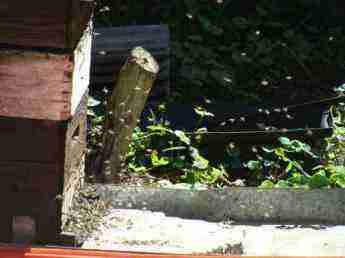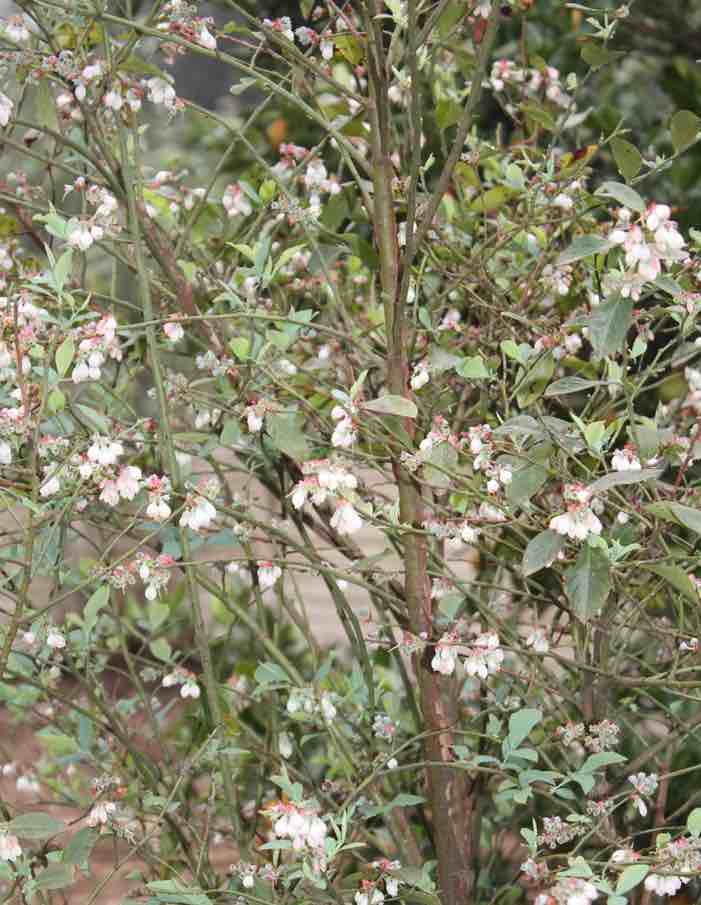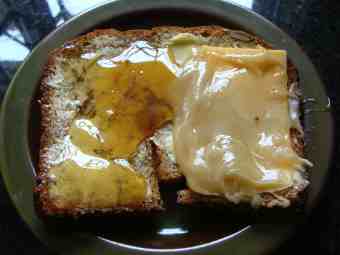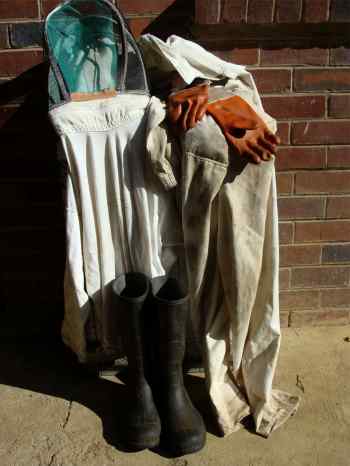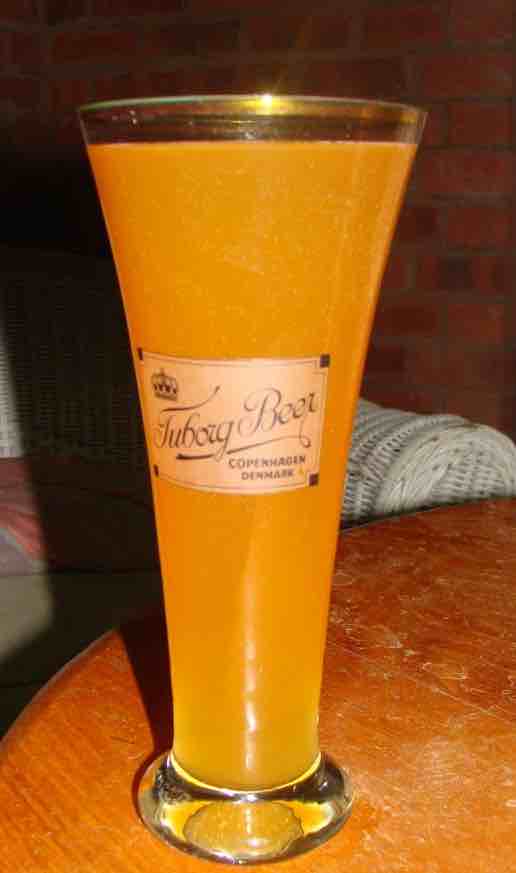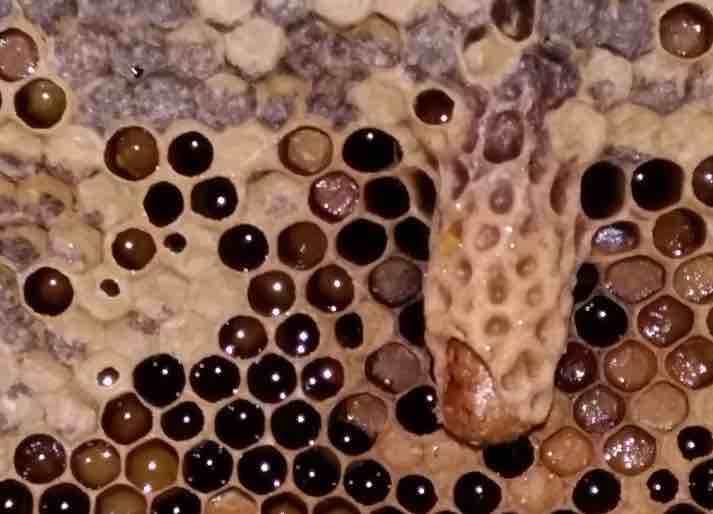| Back to Back Issues Page |
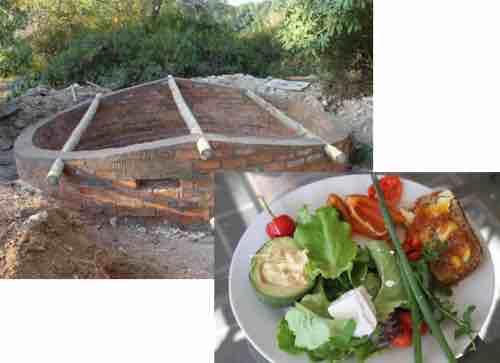 |
|
Keep bees October 16, 2020 |
Keep bees
I'm sure you know that bees the world over are seriously under threat for many different reasons. They are losing their food sources, those thousands of wild flowering plants and pesticides, for example, Even cellphone and 5G radiation have been fingered; and some diseases. There is absolutely nothing we can do about most of that but you could keep a hive or two in your garden. It is perfectly legal in most towns and cities. In fact interestingly, city honey is less contaminated with toxic poisons than that from agricultural farm lands which is what you will get from the supermarket. For example, in Italy there was in August a catastrophe in which 130 hives suddenly died; millions of bees. No one knows the reason yet but this is just part of the decline of insects worldwide. Google the "windshield phenomenon." There are to my mind two good reasons to keep bees. The first is for the planet's sake and the second for yours. Food securityKeep bees not just for their honey but also for pollination of our food sources. It is a fact the number of people literally starving in our world is increasing alarmingly; they live in extreme poverty.Food riots have happened before and we will start seeing them again in the near future in the Third World. The Corona-19 pandemic has simply hastened what was coming anyway. People are hungry, notably in my own native South Africa; unemployment is approaching 40 percent by all accounts. Roughly one in four mouthfuls of what we eat must be pollinated by bees; when they are harmed we will witness a very serious threat to food security. Fruit and nut trees are being particularly hard hit.
Just one other example is that the harvest from sunflowers increases by a third if hives are placed in the fields. The loss of feral bees is having a very serious impact on the viability of agriculture and on food security worldwide.
Honey is a labile productHoney is a sensitive product and is easily damaged in many ways. Heat is one of the greatest enemies, destroying the enzymes that make it unique and driving off many volatile phytochemicals.Because honey is so thick and has a propensity to solidify very quickly if not processed, industry heats it both so it can be more readily worked but also to keep it from crystallizing. The consumer alas loves runny honey and some even think that set honey has had sugar added. It is a generalisation, as some honeys will naturally stay liquid but as a rule of thumb that which has solidified with very fine crystals is most likely the best you can get; and that which is runny is suspect. My brother in Florida would contest that; most of his never sets.
Honey of this quality is very difficult to get; it has not been near heat at any part of the processing and naturally forms these very fine crystals. Astonishingly researchers found that type two diabetics eating quite large amounts of natural unprocessed honey lost 1.8kg in 8 weeks; and the lipid profile improved with no increase in the fasting blood glucose. However the A1c did rise. I would never recommend consuming that amount of honey but anyway you need have no concerns about weight gain from the totally natural product. But please note this has not been shown to be the case with commercial honey; it has a very high GI.
Adulteration of honeyUnscrupulous people are adulterating honey by adding various sugars. I'm told there is an entirely synthetic product being produced in China that not even beekeepers can detect by tasting. Well, so what you may be thinking.Firstly there are none of the 30 plus phytochemicals and enzymes that make honey unique; it's just a sugary solution that will send your blood glucose soaring with no nutritional benefit to you. And secondly, if we adopt this fake stuff there will soon be no bee farmers left to pollinate our crops. Protective equipment
Interestingly in some wild areas where there are still elephants, local farmers hang hives in trees around their fields. For very good reasons a sensible elly give them a wide berth; a bee up your trunk or in your ear is not such fun. Protective equipment and a smoker are vitally important to the 'keeper. European bees are less dangerous than our Africans but, once their ire is raised, they are actually larger and carry more venom. I recently heard of a novice, not wearing protective equipment, who dropped a hive in America and took 200 stings. He is very lucky to be alive. Bees can be dangerousBees can be dangerous to your neighbour too. Do you have a protected spot in your garden or even on a rooftop of a block of apartments where the bees will be out of harm's way and not becoming wildly angry when a mower passes by?Of course it's just plain good neighbourliness to talk to your friend next door and tell him of your intention to keep bees. Would he object to only mowing the grass or turning the sod only in the late afternoon? These are wild creatures and they can turn nasty for reasons unbeknown to us. I am currently harvesting honey from a very strong Spring flow; the hives are chock a block with bees and several times they have literally chased me out of the apiary. I've been keeping bees for sixty years and do not recall them ever becoming so venomous. But these are African killer bees, remember; most of the rest of the world has one of the European or Asian species that are tame in comparison; some keepers don't even wear overalls or gloves. All animals including humans can be unpredictable and when provoked, hit back.
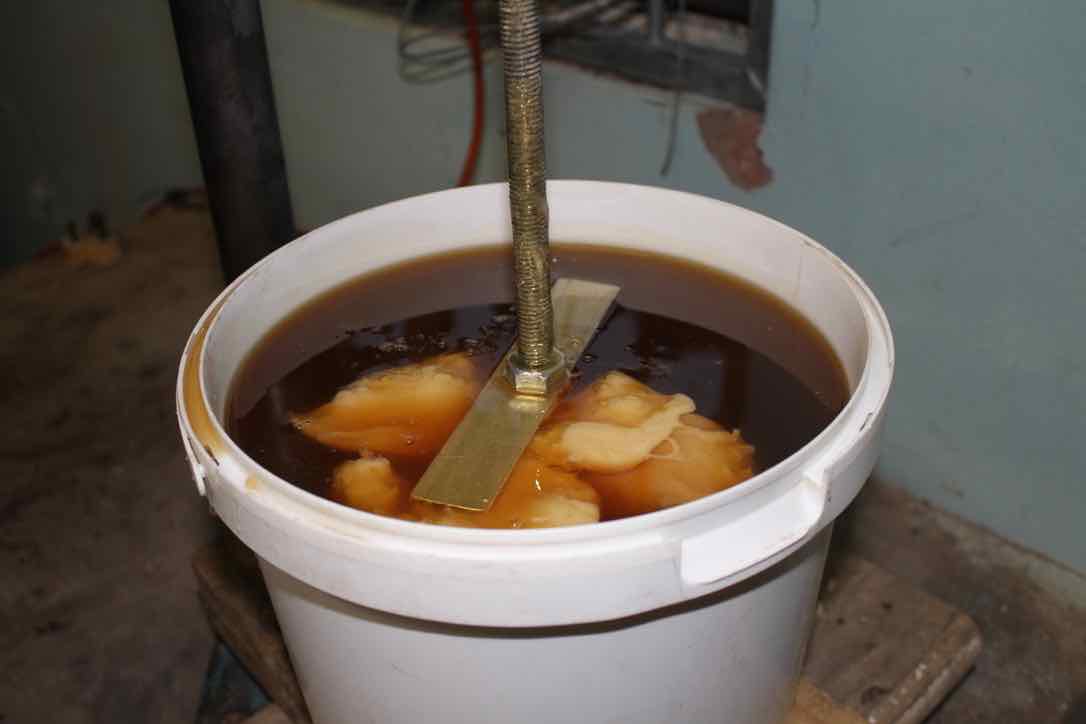
Obviously I'm trying to encourage you to keep bees, not put you off; but it's a big step to take and I would recommend joining the local apiary society to get advice. I have many hobbies but keeping bees has kept its fascination over all the others; for over 60 years. It also connects me to others. Yesterday my granddaughter, aged eleven and I spent an hour creaming 170 pounds of honey; today we will bottle it. What a joy to be able to share one's joys with the little people. My grandfather was the first beekeeper in our family. None of the next generation shared his vision for more nutritious sweetening of food than sugar but interestingly three of his grandchildren are serious keepers, one a professional. That was long before the days of artificial sweeteners; they incidentally are one of the causes of metabolic syndrome. I live in hope that one of my grandchildren will one day take over my hives and extracting
equipment; and my love of bees and of nature. They all adore the natural honey needless to say.
"You must do the thing you think you cannot do." - Eleanor Roosevelt AllergiesI have seen no research on the subject but there is plenty of anecdotal evidence that bee stings can be beneficial to us. There are many who claim they help their arthritic joints.Bee stings always hurt and initially they may cause massive swelling at the site of the sting. Gradually we become more immune to the venom and there is less of a reaction. These days I hardly feel it, unless it's on the face. In an average year I might have 15 to 20 stings. After a long period of not being stung, we may again react more vigorously. Stings around the face and particularly the eyes usually cause massive swelling. This is not necessarily an allergic reaction or a reason not to keep bees; one needs a light veil that one can easily slip on when wandering around the garden when they are busy or have a harvest to defend. In a small number of people swelling occurs not only at the site of the sting but also at distant parts. There may be wheals
around the torso for example. Should it affect the throat or breathing, then it's best to stay well away from beekeeping altogether. Anaphylactic shock is not be toyed with; it may be fatal. Read more at this link.
"That which does not kill me, makes me stronger."
- Friedrich Nietzsche
BraggartA braggart is a honey brown beer; the taste is unbelievable but it's really only for beekeepers. The price would otherwise be prohibitive. We use the gleanings from the combs, nectar which would otherwise be wasted or fed back to the bees.In case you are concerned, the beer is not sweet at all; the natural sugars are turned into alcohol but leaving behind the scent and flavour of a million flowers. It's to die for but only to be enthralled over by a very small band of beekeepers and their friends.
Honey brown beer For the familyKeeping bees is one of the activities where the whole family is roped in. One or two intrepid members actually rob the bees of their hard-earned stores. Oops, that is no longer PC; we harvest the honey.But it is daylight robbery, not much different to taking milk intended for the calf from a cow or eggs from a hen. But in exchange we diligently care for them so there will be another harvest next year, leaving sufficient stores for a dearth period. The older kids are inveigled into turning off their cellphones, Mama is dragged away from her work which never ends and soon there are happy family sounds of laughter and fun as the extractor starts spinning out the honey. A yell when someone picks up a frame with an indignant bee stinging him or her and everyone chortles. The youngest are given the task of bottling the harvest. Favourite teachers will be rewarded for their hard work and no worries about Christmas presents for aunts and uncles; everyone loves the family's honey, totally unspoiled by food manufacturers who ruin almost everything they put their Midas touch to. No longer are we fooled by their desire to become disgustingly rich at the expense of our wellness. And then there is the family conference; how are we going to spoil ourselves this year? With the money earned from the bees are we going on a special holiday or buy a new toy. You do the numbers; my ten hives bring in 500 - 700 pound jars of honey every year. Quarter of a ton; it's not a trifling amount.
He who has a "why" to live for can bear with almost any "how."
- Friedrich Nietzsche
A 'why' to live for
Or soon there won't be a world as we once knew it; already we are close to the tipping point.
"The first principle is that you must not fool yourself, and you are the easiest person to fool." — Richard Feynman
So could your family actually become beekeepers? Of course you could, millions do it and interestingly many of them are women; but there are a fair number of challenges and pricks along the way. VegansIt greatly saddens me that vegans eschew honey; they say we exploit the bees. In part it is valid but it's only a half truth.In a limited space in a tree or under the ground, the combs gradually become old and black and can no longer be used; and they become honey or pollen bound too and diseased. The colony can't breathe and must migrate, at considerable risk, to a new location. We do not rob them blind, careful to leave enough honey for the inevitable rainy day; we manage them, remove and replace the old combs. Beekeepers would argue that it is a winning situation. I'm not vegetarian myself but I come from that tradition and our diet includes very little meat. But vegans are absolute: NO HONEY. They dance to the sound of a different drummer, and that's just fine. Must we always be in agreement on every subject? A challengeIf you think this newsletter worth reading, would you forward it to ten greenies? If not, then it's time to unsubscribe.Next monthNext week features a Blue Zone issue; something that will help us reach healthy old age. This is going to be a difficult one too, for me also. The lifestyle that gives you a great chance of living to healthy nineties comes with some difficulties.Pass this newsletter on to friends and family but only if you feel it is of value; we all get more than enough spam. And start thinking about how you are going to start keeping bees.
See you next month. Bernie
|
| Back to Back Issues Page |
